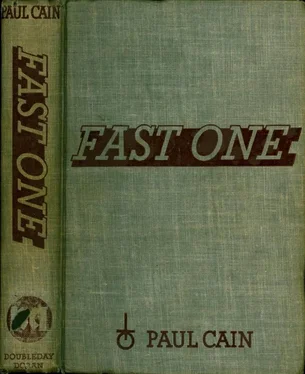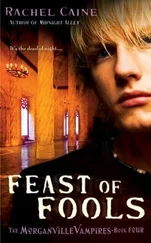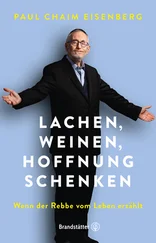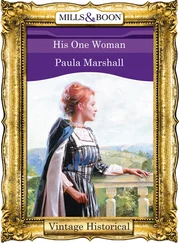The fog was so heavy they didn’t see the light until they were about twenty feet from it. Then they went forward silently and a big ramshackle shed took form in the gray darkness. The light came from a square window on the second floor.
Bernie said: “This used to be a cattle shelter — they’ve built onto it. I guess it’s the place they call the Red Barn.”
They found a door and Kells knocked twice. There was no answer so he turned the knob, pushed the door open.
There was a kerosene lamp at one end of a short bar. The room was long, windowless; the ceiling sloped to a high peak at one end. There was a stairway leading up to a balcony of rough timbers, and there was an open door on the balcony leading into a lighted room.
At first Kells thought the downstairs room was deserted; then by the flickering uncertain light of the lamp he saw a man asleep at one of the half dozen or so tables. There was another man lying on a cot against one wall. He rolled over and said, “Wha’d’ you want?” sleepily. Kells didn’t answer — the man looked at him Wearily for a moment and then grunted and rolled back with his face to the wall.
A man came out on the balcony and stood with his hands on the railing, silently staring down at them. He was of medium height, appeared in the inadequate light to be dark, swarthy.
Kells said: “How are chances of buying a drink?” The man suddenly stepped out of the doorway so that a little more light fell on Kells’ upturned face. Then he threw back his head and laughed noiselessly. His shoulders shook and his face was twisted with mirth, but there was no sound.
Bernie looked at Kells. Kells turned and glanced at the man on the cot, looked up at the swarthy man again. The man stopped laughing, looked down and spoke in a hoarse whisper:
“Sure. Come up.”
He turned, disappeared into the room. Kells said, “Wait,” to Bernie. He went up the stairs two at a time, into the room.
It was a fairly large room, square. There were a few rather good rugs on the floor, a flat-topped desk near the far wall, several chairs. There were two big lamps — the kind that have to be pumped up, hiss when lighted.
The man closed the door behind him, went to the desk and sat down. He waved his hand at a chair but Kells shook his head slightly, stood still.
The man’s face was familiar. It was deeply lined and the eyes were very far apart, very dark. His mouth was full and red, and his hair was very short, black.
Kells asked: “Where do I remember you from?”
The man shook his head. “You don’t.” There was some sort of curious impediment in his speech. Then he smiled. “I’m Crotti.”
Kells pulled a chair closer to the desk. He said: “I’ll still buy a drink.”
Crotti opened a drawer and took out a squat square bottle, a glass. He pushed them across the desk, said: “Help yourself.”
Kells poured himself a drink, sat down.
He knew Crotti very well by reputation, had once had him pointed out in a theater crowd in New York. A big-timer, he had started as a minor gangster in Detroit, become in the space of three or four years a national figure. A flair for color, a certain genius for organization, good political connections had kept him alive, out of jail and at the top. The press had boomed him as a symbol: the Crime Magnate — in New York he was supposed to be the power behind the dope ring, organized prostitution and gambling, the beer business — everything that was good for copy.
Crotti said: “This is a miracle.” His voice was very thin, throaty.
Kells remembered that he had heard something of an operation affecting the vocal cords, that Crotti always spoke in this curious confidential manner.
He asked: “What’s a miracle?”
Crotti leaned back in his chair. “In the morning,” he said, “your hotel was to be called, an invitation was to be extended to you to visit me — out here.”
He opened a box of cigars on the desk, offered them to Kells, carefully selected one.
“And here you are.”
Kells didn’t answer.
Crotti clipped and lighted his cigar, leaned back again. “What do you think of that?”
Kells said: “What do you want?”
“Since you anticipated my invitation may I ask what you want?”
Kells sipped his drink, shrugged. “I came out for a drink of good whiskey,” he said.
He looked around the room. There were two closed doors on his right, a window on his left. In front of him, behind Crotti, there was another large square window — the one he had seen from the outside. He finished his drink, put the glass on the desk.
“I’m looking for a fella named Jack Rose,” he said. “Ever hear of him?”
Crotti nodded.
“Know where he is?”
“No.” Crotti smiled, shook his head.
They were both silent for a minute. Crotti puffed comfortably at his cigar and Kells waited.
Crotti cleared his throat finally, said: “You’ve done very well.”
Kells waited.
“You’ve helped eliminate a lot of small fry: Haardt, Perry, O’Donnell — you’ve run Rose out of town and you have the Fenner and Bellmann factions pretty well in hand. You can write your own ticket...”
“You make it sound swell.” Kells poured himself a drink. “What about it?”
“I’m going to cut you in.”
Kells widened his eyes extravagantly. “What do you mean — cut me in?”
“I’m going to clean up all the loose ends and turn the whole business over to you...”
Kells said: “My, my — isn’t that dandy!” He put the full glass down on the desk. “What the hell are you talking about?”
Crotti flicked the ashes from his cigar, leaned forward.
“Listen,” he said. “Things are pretty hot back East. I’ve been running a couple ships up here with stuff from Mexico for a year. Now, I’m going to move all my interests here, the whole layout. I’m going to take over the coast.”
“And?...”
“And you’re in.”
Kells said: “I’m out.”
Crotti leaned back again, studied the gray tip of his cigar. He smiled slowly. “I think you’re in,” he said.
Kells took a little tin box of aspirin out of his pocket, put two tablets on his tongue and washed them down with whiskey.
“You seem to have kept pretty well in touch with things out here.”
Crotti said: “Yes. I sent an operative out a few weeks ago to look things over — a very clever girl...” He took the cigar out of his mouth. “Name’s Granquist.”
Kells sat very still. He looked at Crotti and then he grinned slowly, broadly.
Crotti grinned back. “Am I right in assuming that you were looking for Rose because you thought he had something to do with Miss Granquist’s — uh — escape?”
Kells didn’t answer.
Crotti stood up. “I always take care of my people,” he said as pompously as his squeaky voice would permit. He went to one of the doors, swung it open. The inner room was dark.
Crotti called: “Hey — Swede.”
There was no answer. Crotti went into the room; Kells could hear him whispering, evidently trying to wake someone up.
He unbuttoned his coat, shifted the shoulder holster. Crotti reappeared in the doorway, and Granquist was behind him. Crotti went back to his chair, sat down.
Granquist stood in the doorway, swaying. Her eyes were heavy with sleep and she stared drunkenly about the room, finally focused on Kells. She sneered as if it were difficult for her to control her facial muscles, put one hand on the doorframe to steady herself.
She said thickly: “Hello — bastard.”
Kells looked away from her, spoke to Crotti. “Nice quiet girl. Just the kind you want to take home and introduce to your folks.”
Crotti laughed soundlessly.
Granquist staggered forward, stood swaying above Kells. “Bastard framed me,” she mumbled — “tried t’ tag me f murder...”
Читать дальше












